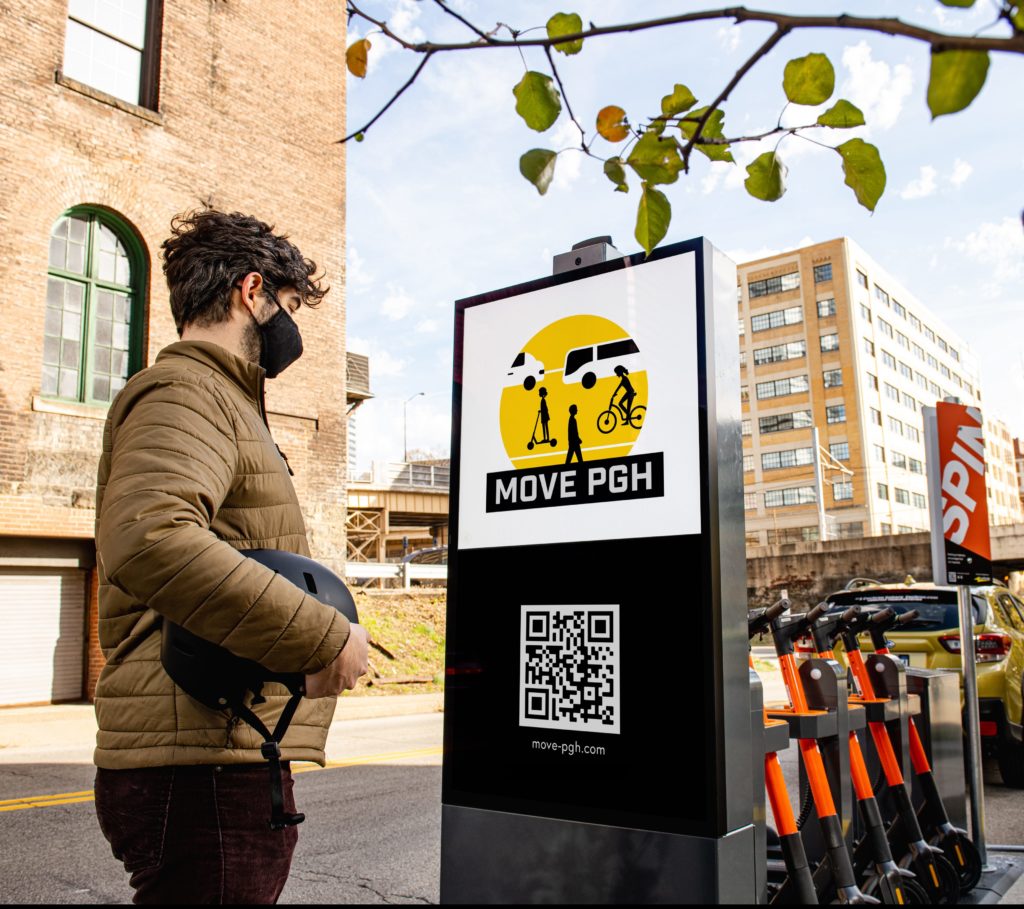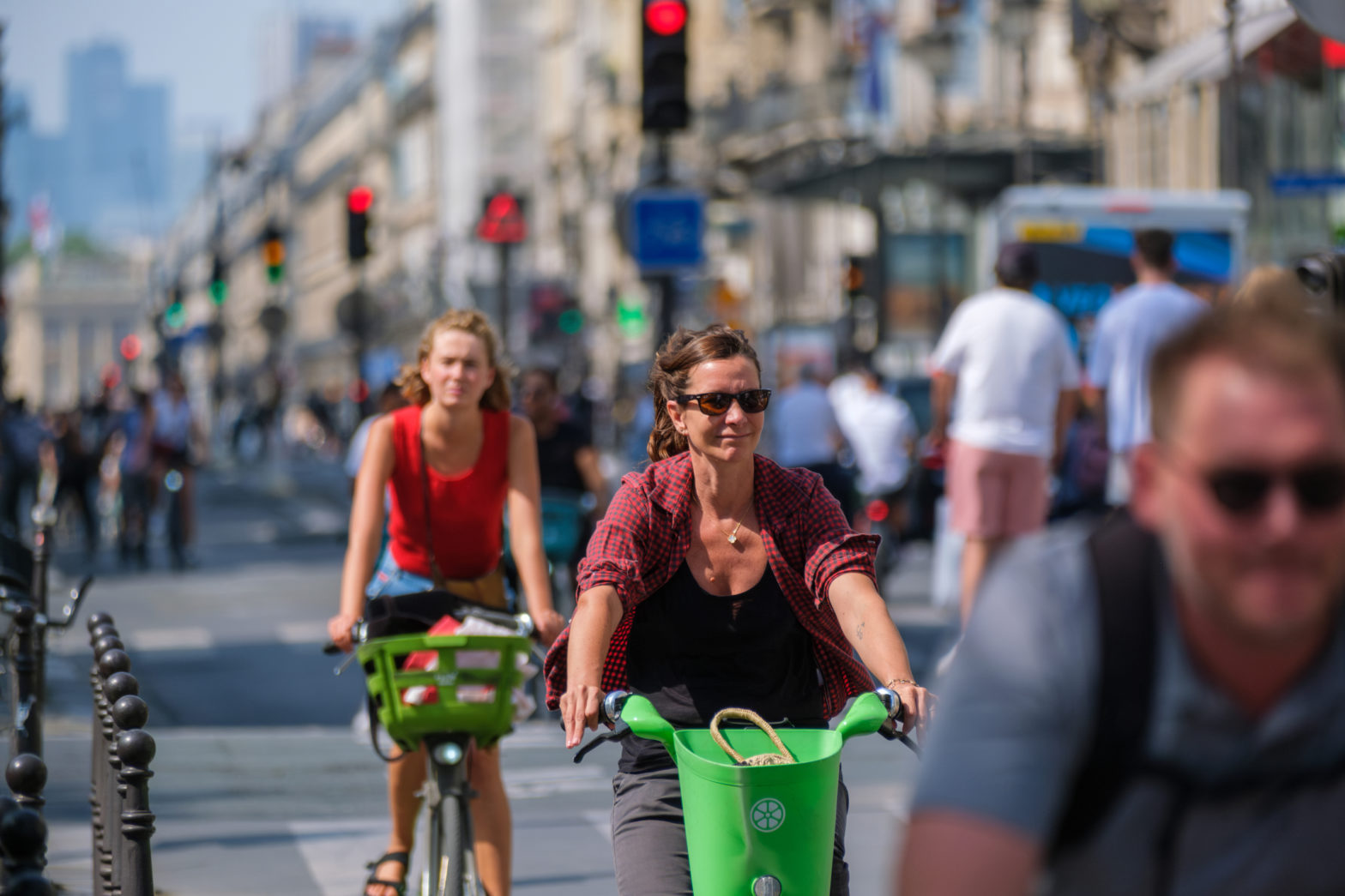
Photo: City of Pittsburgh
Pittsburgh tackles transport insecurity with MaaS programme
19 July 2021
by Christopher Carey
Pittsburgh Mayor William Peduto has announced the creation of two new initiatives designed to boost equitable access to mobility and expand the number of services on offer across the city.
Move PGH will see the creation of 50 mobility hubs where people can access all of the city’s travel options – buses, bikes, mopeds and, for the first time, e-scooters – in one place. The city says Move PGH is the country’s first integrated mobility-as-a-service (MaaS) project that connects traditional and emerging low-cost, shared transportation options into a single, easy-to-use system.
The second programme, Universal Basic Mobility, will provide up to 100 low-income residents with monthly transit subscriptions and shared mobility services for six months.
The initiatives are the result of more than two years of work by a public-private-nonprofit partnership led by the city’s Department of Mobility and Infrastructure (DOMI) and built around existing public transit and bike share schemes.
Both programmes will be funded through US$500,000 in grant funds from The Richard King Mellon Foundation and Ford’s micromobility subsidiary, Spin.
Solving three challenges
Karina Ricks, Director of Pittsburgh’s Department of Mobility and Infrastructure, told Cities Today: “We’re really excited about this.
“There’s a three-fold problem that we’re trying to solve. One is that with all the independent [mobility] services provided in an area, it can be very hard for the user to figure out how to cobble these together.
“The second problem is related to climate change – we really need urgent action to make it easier for people to reduce their driving.
“The last thing is related to the mobility gaps in our system. We’re talking about mobility insecurity – we’ve heard of people being food insecure, but they can also be transportation insecure.
“For example, if they miss their bus, what do they do? If they get a flat tyre on their bicycle, what do they do?
“This [programme] is about trying to build resiliency so people don’t have to experience that insecurity.”
Move PGH
With approximately 40 percent of all trips made in Pittsburgh covering less than two miles, and almost a quarter of residents not having access to a car, DOMI is keen to offer sustainable solutions for first and last-mile trips through the Move PGH programme.
The initiative integrates a coalition of new and existing last-mile service providers, including: a new fleet of shared e-scooters provided by Spin, expanded carshare services provided by Zipcar, a fleet of electric mopeds by Scoobi, carpool matching and commuting services through Waze, electric charging for e-scooters provided by Swiftmile, and real-time information through the Transit app.
There are currently 23 mobility hubs in operation, with a further 27 set to be added by the end of the year.
Universal Basic Mobility
The Universal Basic Mobility programme will cover the cost of 100 monthly subscriptions to the Move PGH programme for low-income residents, who will also receive ‘trip coaching’ from local non-profit the Manchester Citizens Corporation to ensure they know how to use the various services.
Potential participants need to be 21 or older and actively seeking employment if they are not already employed.
The city also wants to focus on the groups that are most at risk, such as those already receiving housing assistance.
“Similar to guaranteed basic income, we’re looking at what would happen if people didn’t have to worry about access to basic transportation – if they could reliably and resiliently get where they’re going,” Ricks added.
“This is especially [true] for those on low income who are kept in this cycle at the bottom,” Ricks said, noting that these workers are most vulnerable to losing their job or missing out on a promotion if they’re late.
“We also think the trip coaching element is going to be critically important to the scheme being successful. It’s the ‘if you give a man a fish versus teaching them to fish’ kind of concept,” Ricks commented.
“If we just throw it out there, are they really going to take advantage of it if they don’t know where the [best] streets are to ride or where the helmet is or how to gas up the Zipcar? So accompanying this [programme] with coaching will be critical to make sure these services are actually useful.”
Image: Move PGH








